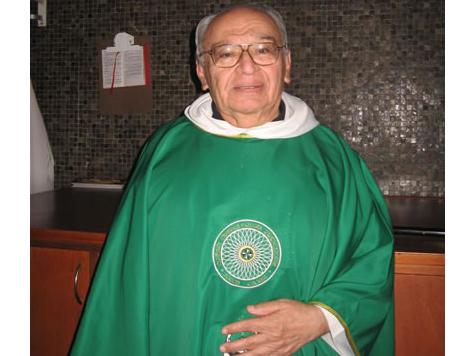
Since the days of Knute Rockne, Notre Dame University has been known as the home of one of the best college football programs in America. Since 2001, it has also been the home of Father Gustavo Gutierrez, the originator of Latin American “liberation theology.” Gutierrez, 85, spent most of his life in his native Peru. He now holds the endowed Cardinal John O’Hara Professorship of Theology at Notre Dame’s School of Theology and splits his time between South Bend, Indiana and Lima, Peru.
In 1973 Gutierrez wrote A Theology of Liberation: History, Politics, and Salvation, which set forth a radical principle that economic and political systems should be organized so as to create “a preferential option for the poor.” That view has permeated much of the Roman Catholic clergy in Latin America, where most countries have been governed for centuries as either a dictatorship, political oligopoly, or socialist state.
In the conclusion of that book, Gutierrez summarized what “liberation theology” entails:
The theology of liberation attempts to reflect on the experience and meaning of the faith based on the commitment to abolish injustice and to build a new society; this theology must be verified by the practice of that commitment, by active, effective participation in the struggle which the exploited social classes have undertaken against their oppressors. Liberation from every form of exploitation, the possibility of a more human and dignified life, the creation of a new humankind–all pass through this struggle.
Gutierrez has a uniquely Latin American view of the causes of poverty. Poverty, he believes is “not a result of fate or laziness, but is due to structural injustices that privilege some while marginalizing others.” The solution to poverty is not economic growth promoted through stable political systems in which markets operate freely. Instead, he believes the solution lies in the collective action of the poor, who “can organize and facilitate social change.”
In A Theology of Liberation, Gutierrez wrote that “[f]aith and political action will not enter into a correct and fruitful relationship except through the effort to create a new type of person in a different society, that is, except through utopia.” According to Gutierrez, “[t]his plan provides the basis for the struggle for better living conditions. Political liberation appears as a path toward utopia of a freer, more human humankind, the protagonist of its own history.”
To emphasize that point, Gutierrez quoted the most celebrated Communist revolutionary in Latin America of the period:
Che Guevera has said: “Socialism currently, in this stage of the construction of socialism and communism, has not as its only purpose to have shining factories; it is intended to help the whole person; human beings must be transformed as production increases, and we would not be doing our job well if we produced only things and not at the same time persons.” It follows that for him the important thing for the building up of a new society is simultaneously “a daily increase in both productivity and awareness.”
When Argentinian Cardinal Jorge Mario Bergoglio became Pope Francis I in March 2013, it seemed possible that he might encourage a more widespread adoption of the anti-capitalist “liberation theology” of Gutierrez, his fellow Latin American. Gutierrez’s private meeting with Pope Francis I in the Vatican in September 2013 made that possibility seemed increasingly likely. When the the pope issued his apostolic exhoration, Evangelii Gaudium, on November 24 of this year some of the key elements of the economic and political philosophy expressed therein sounded as if they had rolled off the pen of Gutierrez himself.
Under the subtitle “No to an economy of exclusion,” the pope wrote in the 53rd paragraph of his apostolic exhortation, “Just as the commandment ‘Thou shalt not kill’ sets a clear limit in order to safeguard the value of human life, today we also have to say ‘thou shalt not’ to an economy of exclusion and inequality. Such an economy kills.” [emphasis added]
“Today,” the pope wrote, “everything comes under the laws of competition and the survival of the fittest, where the powerful feed upon the powerless. As a consequence, masses of people find themselves excluded and marginalized: without work, without possibilities, without any means of escape. ” [emphasis added]
“We have created,” the pope continued, “a ‘throw away’ culture which is now spreading. It is no longer simply about exploitation and oppression, but something new. Exclusion ultimately has to do with what it means to be a part of the society in which we live; those excluded are no longer society’s underside or its fringes or its disenfranchised – they are no longer even a part of it. The excluded are not the ‘exploited’ but the outcast, the ‘leftovers’. “
Notre Dame first came to national prominence in the United States when Knute Rockne and his teams pioneered the use of the forward pass in football. Now, thanks to Father Gutierrez’s “liberation theology”, it will be soon known around the world for its role in pioneering the left wing politicization of the Roman Catholic Church.

COMMENTS
Please let us know if you're having issues with commenting.